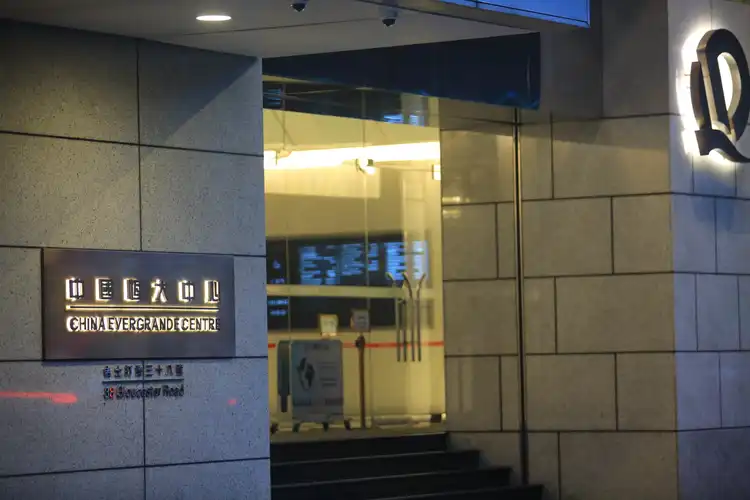China’s real estate giant Evergrande has suspended its stock trading in Hong Kong. The halt follows a regulatory notice.
Moreover, two subsidiaries have also ceased trading. These units focus on real estate services and electric cars.
Combined, these companies are worth $2.1 billion, according to Bloomberg.
Furthermore, this trading halt comes right after Bloomberg reported CEO Xu Jiayin is under house arrest.
After a 17-month break for not revealing financial data, Evergrande returned to trading just a month ago.

Recently, the firm announced it couldn’t issue new bonds. A subsidiary, Hengda Real Estate, is under investigation.
Earlier, Evergrande stated a key meeting on debt restructuring was off the table. They cited the need to adjust plans to suit creditors and current conditions.
Missed Payment and Broader Implications
This week, the company defaulted on a vital debt payment. Additionally, financial media outlet Caixin noted arrests of former company leaders.
Real estate drives about a quarter of China’s GDP. However, Beijing now considers the debt from top companies like Evergrande as too risky.
The Evergrande crisis is worsening a larger economic slowdown in China. Consequently, youth unemployment is hitting historic highs.
For this year, the government has set a meager 5% growth target.
Starting in 2020, credit access for developers got stricter. This led to multiple defaults, Evergrande included.
Earlier this month, Shenzhen officials arrested some of the company’s employees and called for fraud reporting.
Lastly, another big real estate firm, Country Garden, is nearing bankruptcy. The company reported massive losses and carries over $150 billion in debt.
Background Evergrande
This Evergrande situation exposes the fragility of China’s booming real estate sector. Moreover, it raises questions about China’s economic stability.
The issue isn’t just a company faltering; it reflects systemic risks. Therefore, global investors are watching closely.
Beijing’s strategy to tighten credit also warrants scrutiny. Are these measures too harsh or necessary for long-term stability?
Either way, the ripple effects are real. For instance, U.S. markets have reacted nervously to Evergrande’s struggles, showing the global interconnectedness of finance.

